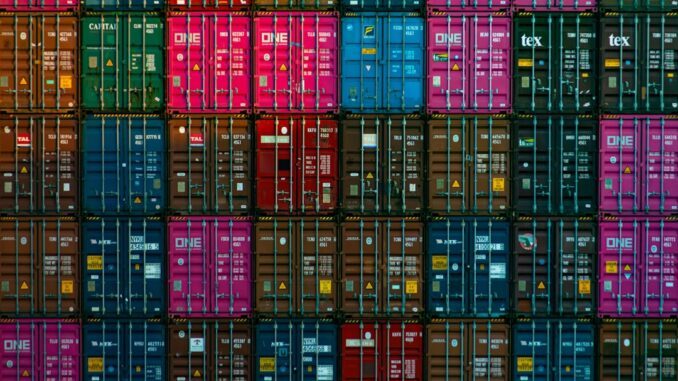
Summary
Scott Whitaker, CEO of AdvaMed, testified before the Senate Finance Committee, advocating for tariff relief for the medical technology industry. He argued that tariffs on medtech products harm American innovation and increase healthcare costs, impacting patients and federally funded programs. Whitaker proposed a “zero-for-zero” reciprocal tariff model for medical devices to safeguard the industry and patient access.
** Main Story**
Alright, so I wanted to share something interesting that came across my desk – Scott Whitaker, the CEO of AdvaMed, recently testified before the Senate Finance Committee about tariffs and their impact on the medical device industry. It’s a pretty crucial issue, and his testimony really shed light on some important considerations. I think, you know, it’s something we should all be aware of, especially those of us in the business and connected to this kind of work.
He basically made a strong case that tariffs are hurting the industry, and in turn, they end up hurting patients and driving up costs. What’s particularly concerning is how these tariffs could potentially stifle innovation, which is, well, the lifeblood of the medtech sector. But what’s the solution? He’s advocating for a “zero-for-zero” reciprocal tariff model. Sounds good on paper, right? Let’s dig into that a bit more.
Why Tariffs Are a Problem for Medtech
Think about it: the U.S. is a major player in the global medtech market, and the industry supports millions of jobs right here at home. But tariffs throw a wrench into the whole system. They disrupt these intricate supply chains, making it harder to get essential components, and ultimately drive up manufacturing costs.
And guess who pays the price? Yeah, you guessed it, patients end up footing a larger bill, and government programs like Medicare and Medicaid feel the strain. Remember when I was working on that project with the new diagnostic tool? We almost got completely derailed by a tariff increase on some imported sensors. It was a total headache! It took us ages to find an alternative supplier, and the delay impacted our launch date. Point is, this stuff actually matters.
The “Zero-for-Zero” Proposal: A Way Out?
So, what exactly is this “zero-for-zero” idea? It’s pretty straightforward: countries agree to eliminate tariffs on medical technologies. Simple, right? Whitaker argued that this is essential for keeping the industry competitive. He pointed out how it ensures access to life-saving devices. Not to mention, it also helps to keep prices under control. He also touched on the humanitarian angle, saying that accessible and affordable medical technologies are essential for patients who need them. Which is, you know, hard to argue with.
The Medtech Supply Chain: A Complex Web
One thing Whitaker emphasized really hammered home the issue: the medtech supply chain is incredibly complex. We aren’t just talking about a few parts, right? Medical devices often consist of hundreds of components, sourced from all corners of the globe.
Trying to shift all that production to the U.S.? It’s not as simple as flipping a switch. It is a slow and costly process, and the regulatory hoops you have to jump through are time consuming. Sure, near-shoring some production to North America makes sense, but even that is affected if we can’t easily get those key components due to tariffs. You end up spending more and it slows down innovation. It’s like trying to bake a cake when you can’t get the flour – frustrating, to say the least.
Thinking Ahead: Medtech, Trade, and the Future
Whitaker’s testimony was a timely reminder of how important trade policies are for the medical device sector. Ultimately, the medtech industry plays a vital role in American healthcare, and tariffs are a real threat to its success.
Policymakers need to really think about the industry’s unique characteristics and global interconnectedness. Because let’s face it, these decisions will have consequences. The “zero-for-zero” tariff model could be a valuable approach to help mitigate the bad impacts of tariffs. It could also help preserve innovation in medtech. It’s definitely something to keep an eye on, and I’m curious to see how the Senate Finance Committee responds. And to be frank, if we are working in medtech, it will pay dividends to stay informed and engaged.


Whitaker’s point about the complexity of the medtech supply chain is critical. How can companies proactively diversify their sourcing strategies to mitigate tariff-related disruptions and ensure continued access to essential components, perhaps through strategic partnerships or investments in alternative suppliers?
That’s a great point! Diversifying sourcing is key. Strategic partnerships and investments are definitely part of the answer, but perhaps exploring regional manufacturing hubs could also offer more resilience and mitigate risks associated with global disruptions.
Editor: MedTechNews.Uk
Thank you to our Sponsor Esdebe
The complexity of the medtech supply chain highlights the need for agile regulatory frameworks. Streamlining approval processes for alternative components could help companies adapt more quickly to tariff-related disruptions and maintain innovation.
That’s an excellent point about agile regulatory frameworks. Streamlining those processes could really empower companies to innovate faster and navigate supply chain disruptions more effectively. It could also reduce delays in getting crucial medical technologies to patients. How can we encourage faster adoption of more adaptive regulations?
Editor: MedTechNews.Uk
Thank you to our Sponsor Esdebe
The “zero-for-zero” tariff model sounds promising for maintaining competitiveness. Beyond tariff elimination, could standardizing international regulatory requirements for medical devices further streamline market access and reduce costs, fostering greater innovation and patient access?
That’s a really insightful question! Standardizing international regulatory requirements could definitely amplify the benefits of tariff elimination. Harmonizing these standards would streamline the approval process, making it easier and faster to bring innovative medical devices to patients across the globe. It would be interesting to consider the practical steps to achieving such standardization.
Editor: MedTechNews.Uk
Thank you to our Sponsor Esdebe